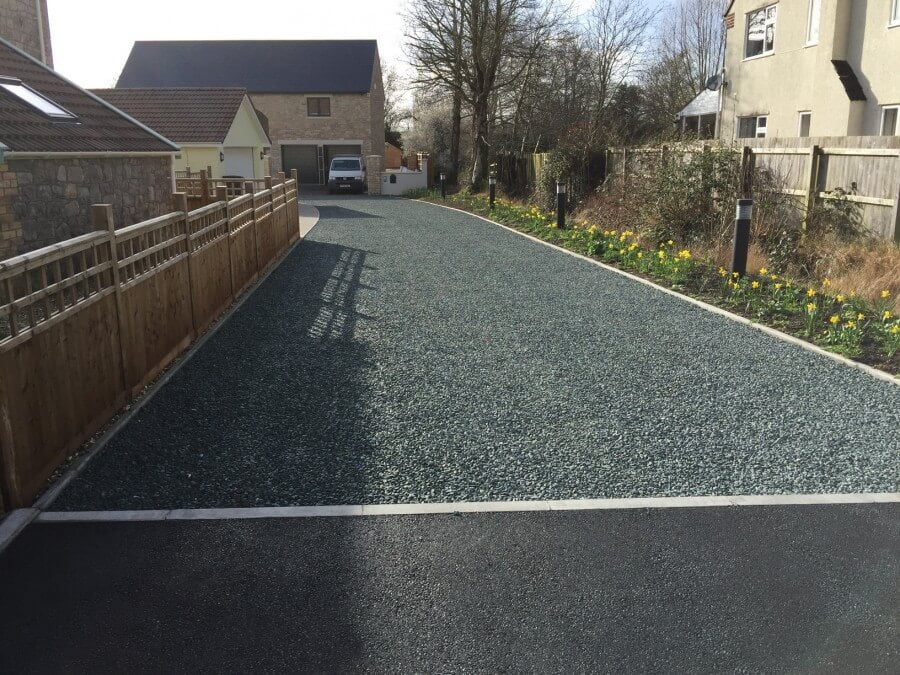Maintaining a salting gravel driveway can be a bit challenging as compared to maintaining a paved driveway. However, with proper care and attention, you can keep your driveway in good condition and make it last for a long time. Here are some tips for maintaining a salting gravel driveway:
Regularly rake and level the gravel:
Over time, the gravel on your driveway can get displaced or pushed around, which can lead to uneven surfaces and potholes. To prevent this, rake and level your driveway regularly, especially after heavy rains or snowstorms. This will help to redistribute the gravel evenly and prevent it from accumulating in certain areas.
Fill in potholes:
If you notice any potholes or low spots on your driveway, fill them in with fresh gravel. This will prevent water from pooling in these areas, which can cause damage to the driveway over time.
Keep the driveway free of debris:
Leaves, twigs, and other debris can accumulate on your driveway over time, which can make it more difficult to maintain. Use a leaf blower or a rake to remove any debris regularly to keep the surface of the driveway clean.
Control weeds:
Weeds can quickly grow in the spaces between the gravel on your driveway, which can cause the surface to become uneven. Use a weed killer or pull the weeds out by hand regularly to keep them under control.
Keep the drainage system in good condition:
A proper drainage system is essential to prevent water from pooling on your driveway, which can cause damage to the surface over time. Make sure that the gutters and drainage channels around your driveway are clean and free of debris, and ensure that the water is flowing away from the driveway.
Avoid using heavy equipment:
Avoid using heavy equipment on your gravel driveway, as this can cause damage to the surface. This includes vehicles with heavy loads, such as trucks or trailers, and heavy machinery such as tractors. If you need to use heavy equipment on your driveway, consider laying down some protective mats or boards to prevent damage to the surface.
Apply salt or sand in winter:
In winter, it’s important to apply salt or sand to your driveway to prevent ice from forming and to improve traction. However, you should avoid using rock salt, as this can damage the surface of your driveway. Instead, use sand or a calcium-based ice melt product.
Avoid using harsh chemicals:
Harsh chemicals such as bleach or ammonia can damage the surface of your driveway and kill the vegetation around it. Avoid using these products on or near your driveway.
Check for erosion:
Erosion can occur over time, especially if your driveway is located on a slope or if heavy rainfalls occur frequently. Check your driveway regularly for signs of erosion, such as gullies or exposed gravel. If you notice any erosion, take steps to correct it as soon as possible.
Consider sealing your driveway:
Sealing your driveway can help to protect it from the elements and extend its lifespan. However, it’s important to use a sealant that is specifically designed for gravel driveways, as regular asphalt sealants can cause damage to the surface.
By following these tips, you can maintain your salting gravel driveway in good condition and make it last for many years to come. Remember to be consistent with your maintenance efforts and to address any issues as soon as they arise to prevent them from becoming more serious problems.

